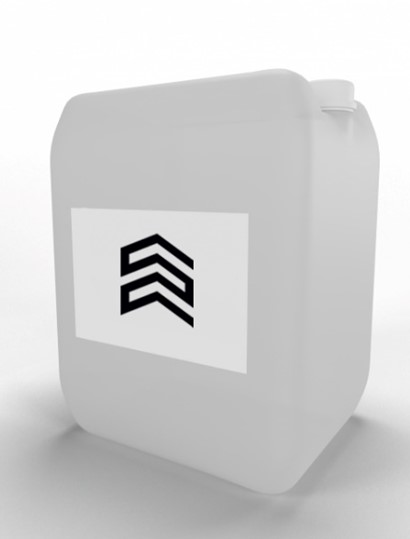In Russia, over 1.5 years, 93 seizures were imposed on the assets of foreign businesses

In the context of sanctions and the exodus of foreign companies from Russia, arbitration courts began to use interim measures against foreign defendants more often than usual, including the seizure of funds and property, shares and interests, etc. This is stated in a study by the MEF Legal (tax consulting) company, available to RBC.
The company’s specialists studied 295 rulings of arbitration courts for the period from March 1, 2022 to October 24, 2023. The analysis showed that in a third of cases interim measures are applied against foreign businesses. Most of them are “traditional” (seizure of assets for a certain amount, shares, real estate), but there are also those that the MEF Legal classified as “exotic” - arrest of the entire corporate structure in Russia or so-called anti-suit bans. In total, during this period, the courts introduced 117 various types of interim measures, of which 93 were arrests.
Basically, with such measures, Russian applicants are trying to keep foreign business or assets in Russia, the authors believe. They predict that the share of interim measures taken against foreign businesses will grow.
How the number of disputes involving foreigners is growing
In 2022 and 2023, the number of economic disputes in courts involving foreign legal entities increased significantly. If in 2021 there were 13.9 thousand such cases, then in 2022 there were already 17.9 thousand, and in the first half of 2023, 14 thousand cases were already received, according to data from the Judicial Department at the Supreme Court.
Thus, at the end of this year, the number of disputes will increase by 50–60% compared to 2022, or twice as much as in 2021, estimates MEF Legal partner Rimma Malinskaya. Statistics show disputes directly with foreign legal entities, while in general there are much more disputes with foreign businesses, which can be represented by Russian subsidiaries or companies associated with foreigners, the study states.
According to Malinskaya, the frequency of disputes involving foreigners is increasing against the backdrop of a restructuring of relations with foreign partners: payment and supply chains were broken, some partners “fell out” of business, others suspended or completely stopped fulfilling their obligations.
Read PionerProdukt .by “Anti-China”. Why India Won't Get an Economic Miracle “Better Dressed than Me”: These Sales Mistakes Will Turn Off Wealthy Customers The Second Coming. What forced Didi to change the exchange from the USA to Hong Kong Education on the go: is it possible to learn something from micro coursesWhy are interim measures applied?
Interim measures are needed to protect the rights of the plaintiff, although they are a “rare and difficult tool to use.” Now it has changed: courts have begun to use interim measures against foreigners more often, and the standard of proof for their use has decreased, explains Malinskaya.
According to the analysis, interim measures against foreign businesses were taken in 99 definitions, that is, in 33.5% of cases. For comparison: interim measures against all defendants (not only foreign persons), according to statistics from the Judicial Department of the Supreme Court, are taken consistently in 30% of cases. “An increase in the indicator by 3.5 percentage points. in disputes against foreign businesses can be considered a noteworthy deviation,” say the study’s authors .
Among the high-profile cases this year involving the imposition of interim measures is the seizure of the assets of the transnational chemical company Linde in the amount of 35 billion rubles. and the arrest of 5% of the shares of Detsky Mir owned by Goldman Sachs, according to the claim of Otkritie Bank.
In 2024, the share of the use of interim measures in arbitration court decisions may increase to 40–45%, admits the MEF Legal. This can be facilitated by judicial precedents that simplify the protection of the rights of Russian persons in disputes against foreigners. Among them is confirmation of the possibility of bankruptcy of a foreign company in a Russian court: the corresponding decision was made in the case of Zenit Bank against Credit Suisse on declaring a Swiss bank bankrupt. Another precedent is the decision on the liability of Russian subsidiaries for the debts of a foreign company (Sovcombank v. Citibank case).
Most often, courts apply interim measures against a foreign business on three grounds: termination of business in Russia, the presence of foreign control over the defendant, or when foreign sanctions prevent the execution of the decision in a foreign jurisdiction. These grounds are stated in two thirds of cases with the use of interim measures, as follows from the analyzed definitions. “In most cases, it was enough for applicants to refer to one of the above circumstances or a combination of them, without providing evidence of actual facts of transfer of assets outside Russian jurisdiction or the presence of such intentions, for the court to take interim measures,” explains Malinskaya . In disputes against other categories of defendants, the standard of proof is higher: the applicant usually needs to provide real evidence confirming the threat of impossibility of executing a judicial act or causing harm, she clarified.
What measures are being introduced
Most often, as an interim measure (in 30% of cases), the court seizes funds or property for the amount of the claims. Thus, according to the lawsuit of Yamal LNG against the oil service company Baker Hughes Rus. the court seized the latter’s funds and property in the amount of 4.8 billion rubles. The plaintiff transferred advances to Baker Hughes for parts that were not supplied, funds to compensate for customs duties under the contract, etc., which he demanded to return. Yamal LNG planned to initiate proceedings in international commercial arbitration, but asked to introduce preliminary interim measures, since “the defendant is actively alienating its Russian assets and refusing to participate in projects in Russia, which entails the risk of impossibility of enforcing a future arbitration award in the Russian Federation,” stated in the court decision.
The second most popular measure is seizure of movable property. One of the cases: according to a court decision, Russian Railways kept Siemens equipment for repairing high-speed trains in their storage. Such measures are announced due to the fact that Russian companies are trying to counteract the departure of foreign partners from Russia and preserve the possibility of continuing production activities by keeping equipment in the country.
Also among the frequently taken measures is the seizure of shares and shares of companies. Thus, according to VTB’s application, the court seized securities of various issuers that belonged to VTB’s European subsidiary, VTB Bank (Europe) SE, in the amount of 11.3 billion rubles.
At the same time, among the interim measures that the courts imposed on foreign businesses, there were also “exotic” categories. Among them:
Seizure of the corporate structure and property of related third partiesIn the case of Ruskhimalliansa against the chemical company Linde, the court seized not only the defendants’ shares in subsidiaries, but also the shares of “subsidiaries” in “grandchildren” companies and in “great-grandchildren” companies. In its decision, the court called this practice “common.” This approach has indeed been encountered before, but more often in bankruptcy cases, explains Malinskaya. Apparently, such bankruptcy scenarios now extend to ordinary civil disputes, she clarified. It was reported that the total value of the property for which the applicant is asking for seizure is 35 billion rubles.
Anti-suit injunction (prohibition against initiating or continuing proceedings abroad)The court, in particular, took such a measure in the case of GAZ against the Finnish insurance company AIG Europe SA Finland Branch and established a penalty for failure to comply. “In such cases, the interim measure repeats the final result requested, that is, in fact, it anticipates the result of the consideration of the claim,” the MEF Legal points out. Anti-suit bans entered legal practice with the adoption of amendments to the Arbitration Procedure Code in 2020, which allowed Russian companies on foreign sanctions lists to petition regional arbitration courts to prohibit their foreign counterparties from initiating or continuing proceedings in foreign courts or international commercial arbitrations. .
Prohibition of a third party to fulfill obligationsThis measure was taken by the Russian arbitration court in response to the claim of Ingosstrakh, which is suing the German subsidiary of UniCredit in a Munich court over the restoration of structured notes associated with Rusal Eurobonds (the plaintiff claims that UniCredit unlawfully repaid them).
The Moscow Arbitration Court, at the request of Ingosstrakh, prohibited a third party - Rusal and its affiliates - from fulfilling obligations under Eurobonds to UniCredit, since otherwise they would be repaid and “disappear” from circulation. “In this case, the court also invaded the sphere of property relations of third parties, prohibiting payments in favor of the defendant. In theory, the Arbitration Procedural Code of the Russian Federation allows for the adoption of such measures, but in general this is a rather rare practice,” Malinskaya noted.
According to her, the development of the practice of “exotic” interim measures can be explained by the desire of the courts to protect Russian individuals who are deprived of protection in foreign countries due to the sanctions regime.
Prospects for judicial practice
According to statistics from the Supreme Court, the Arbitration Courts of Moscow, St. Petersburg and the Leningrad Region most often take interim measures . In an industry context, courts most often take interim measures against foreigners from the manufacturing, aviation and IT sectors , and less often against logistics companies and retail.
“The trend toward simplification of obtaining interim measures in arbitration courts against foreign businesses emerged about a year ago, mainly after statements by a number of such companies about leaving Russia,” agrees Sergey Lisin, partner in the dispute resolution and bankruptcy practice of BGP Litigation. “Even such traditionally ‘non-measure-loving territories’ (from ‘measure’) as Moscow and St. Petersburg have begun to issue similar measures more often.”
The increase in the number of interim measures imposed is explained by the very logic of procedural legislation, says Alexey Korol, a lawyer in the international structuring and sanctions compliance practice at the law firm Lemchik, Krupsky and Partners. “If a foreign founder of a business no longer intends to develop it in the country or hastily leaves the market, then the likelihood of satisfying the plaintiff’s demands and enforcing a court decision decreases, and assets are often removed from the control of the defendant’s company. To prevent such a situation, interim measures are precisely what is needed,” he notes.
The lawyer explains the active use of interim measures in disputes between production companies as follows: production companies often have large and weakly mobile assets, which are easier to find and seize. As for the aviation industry, the aggravation may be due to the strong sanctions context (Russian aviation fell under one of the toughest Western sanctions). “Western countries are actively monitoring violations of sanctions or export control laws specifically in connection with the operation of aircraft, which is why foreign airlines may behave in a more specific manner towards Russian counterparties,” explains Korol.
In general, the use of interim measures may mean that companies will lose seized assets. “If the head office abroad has made a firm decision to leave the Russian market, then local investments will most likely be written off, which means they have already mentally said goodbye to assets in Russia. Moreover, if interim measures are related to the inability to transfer control to third parties, then they will slow down the implementation of the decision of the global management. If the Russian market remains important for the company, then interim measures may be more painful,” the lawyer sums up.




























































